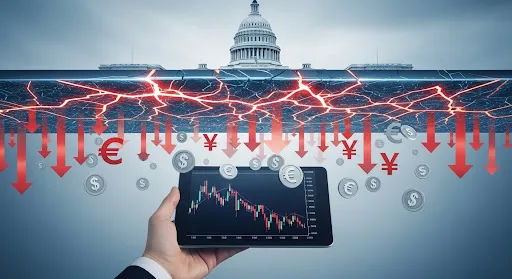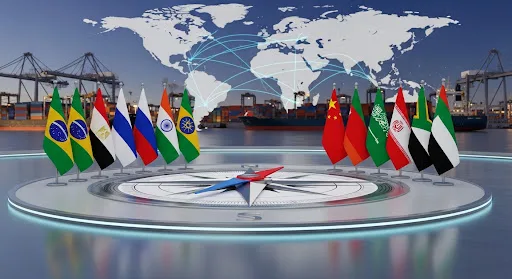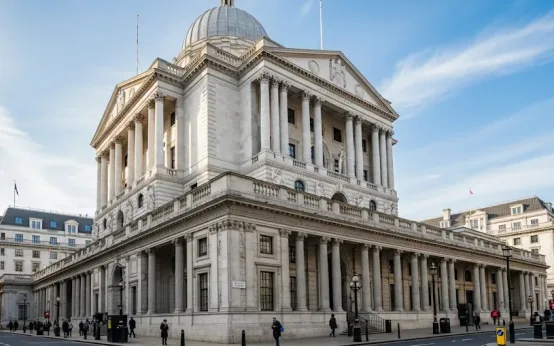More than two years since its onset, the Ukraine-Russia war has evolved from a sudden shock to a persistent, underlying force shaping global markets. For UK residents, the conflict’s impact is not just an abstract news headline; it is a tangible factor contributing to the cost of living, influencing the value of pensions and investments, and driving policy decisions by institutions like the Bank of England. While the initial extreme volatility has subsided, the war’s long-term effects on energy prices, inflation, and geopolitical risk continue to reverberate through the economy. This article will provide a clear, detailed overview of the ongoing impact of the Ukraine-Russia war on global markets today, helping you understand how it affects your finances and what you need to be aware of.
Energy and Commodity Market Realignment
The most significant and immediate impact of the war was on energy and commodity markets. At the start of the conflict, Europe’s heavy reliance on Russian natural gas and oil created a shockwave. This led to a surge in energy prices, which directly impacted UK households through soaring energy bills and contributed to a significant increase in the price cap set by Ofgem. While energy prices have since stabilised from their peaks, the market has undergone a fundamental realignment. Russia has redirected its energy exports to new partners, primarily in Asia, while Europe has invested heavily in alternative energy sources and LNG terminals to reduce its dependency on Russia.
This geopolitical shift has created a new, persistent layer of risk in the market. The threat of a disruption to these new supply chains or a further escalation of sanctions keeps energy markets on edge. Furthermore, the war has had a sustained impact on global food prices. Ukraine and Russia are major global suppliers of wheat, corn, and sunflower oil, and the conflict has constrained exports. This has compounded existing inflationary pressures, a factor the Bank of England has had to closely monitor when setting interest rates to combat inflation.
Inflation, the Bank of England, and the Cost of Living
For UK residents, the war’s primary impact has been felt through the wallet. The surge in energy and food prices acted as a major catalyst for the post-pandemic inflationary spike. The cost of a weekly shop and household bills rose dramatically, directly contributing to the ongoing cost-of-living crisis. This inflation was a key challenge for the Bank of England, which has been tasked with bringing inflation back to its 2% target. In response, the Monetary Policy Committee embarked on a cycle of interest rate hikes.
While these rate hikes were necessary to cool the economy and control inflation, they had a direct impact on UK mortgage holders. Many faced a significant increase in their monthly payments as they came to the end of a fixed-rate deal, placing further strain on household budgets. The war’s lasting effect on energy and food prices remains a crucial data point for the Bank of England, and any new developments in the conflict could still influence future monetary policy decisions.
Stock Market Volatility and Sectoral Shifts
The initial days of the war were marked by extreme volatility in global stock markets, but today’s picture is more nuanced. Investors have largely priced in the ongoing conflict, and market attention has shifted to other factors, such as central bank policy and corporate earnings. However, the war remains a source of underlying risk that can impact specific sectors.
The defence and aerospace industries, for example, have seen a significant boost in investment as many countries, particularly in Europe, have increased their defence spending. This has been reflected in the stock prices of companies in this sector. Conversely, some sectors, like those with extensive historical trade ties to Russia or Ukraine, have had to fundamentally alter their business models, which has impacted their profitability. For a UK pension holder, this means that the performance of their fund could still be indirectly affected by the war’s influence on the FTSE 100 and other global indices, depending on the fund’s specific holdings.
Geopolitical and Long-Term Economic Repercussions
The war has accelerated a broader global trend of deglobalisation and the reshaping of supply chains. Companies are increasingly seeking to “onshore” or “friend-shore” their manufacturing and supply lines to reduce their reliance on politically unstable regions. This shift could have long-term consequences for economic efficiency and international trade.
For UK businesses, this means that sourcing materials or components from new regions may lead to higher costs, which are then passed on to consumers. The war’s impact is also shaping global fiscal policy, with many governments, including the UK, increasing their defence budgets. This reallocation of resources from other areas of public spending, such as healthcare and education, could have a profound effect on national priorities and the overall economy in the years to come.
Next Steps: Managing Your Finances Today
The impact of the Ukraine-Russia war on global markets today is multifaceted and ongoing. While the initial panic has subsided, its effects are woven into the fabric of our everyday lives through inflation, energy prices, and interest rates. For a UK resident, the most sensible action is to stay informed and to take stock of your personal finances. Review your investment portfolio or pension fund to understand its exposure to the affected sectors. Consider seeking independent financial advice if you are unsure. Most importantly, continue to budget prudently for potential fluctuations in energy and food costs, as the economic ripples of this conflict are likely to be felt for some time to come.

 How the U.S. Debt Ceiling Crisis Impacts Investors
How the U.S. Debt Ceiling Crisis Impacts Investors  BRICS Expansion: Will It Transform Global Trade?
BRICS Expansion: Will It Transform Global Trade?  How the Bank of England Interest Rate Affects You
How the Bank of England Interest Rate Affects You